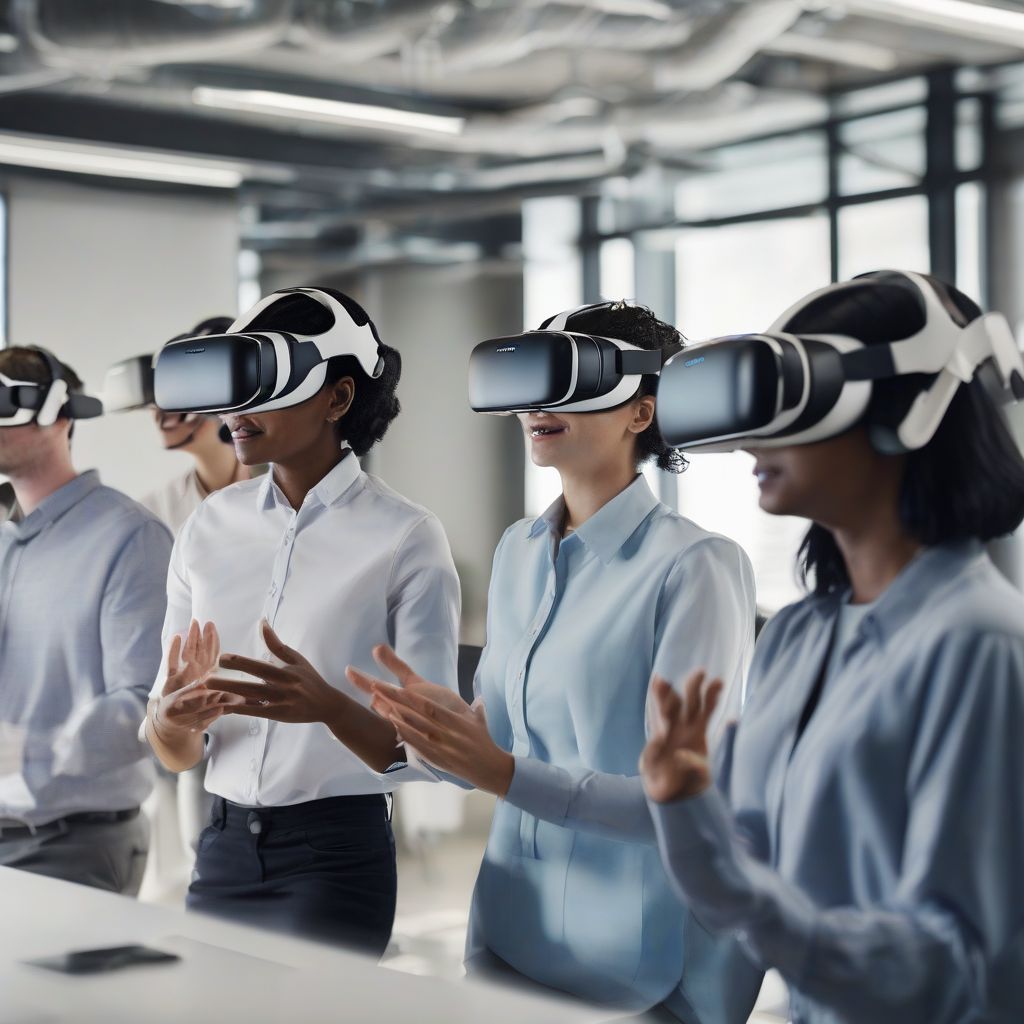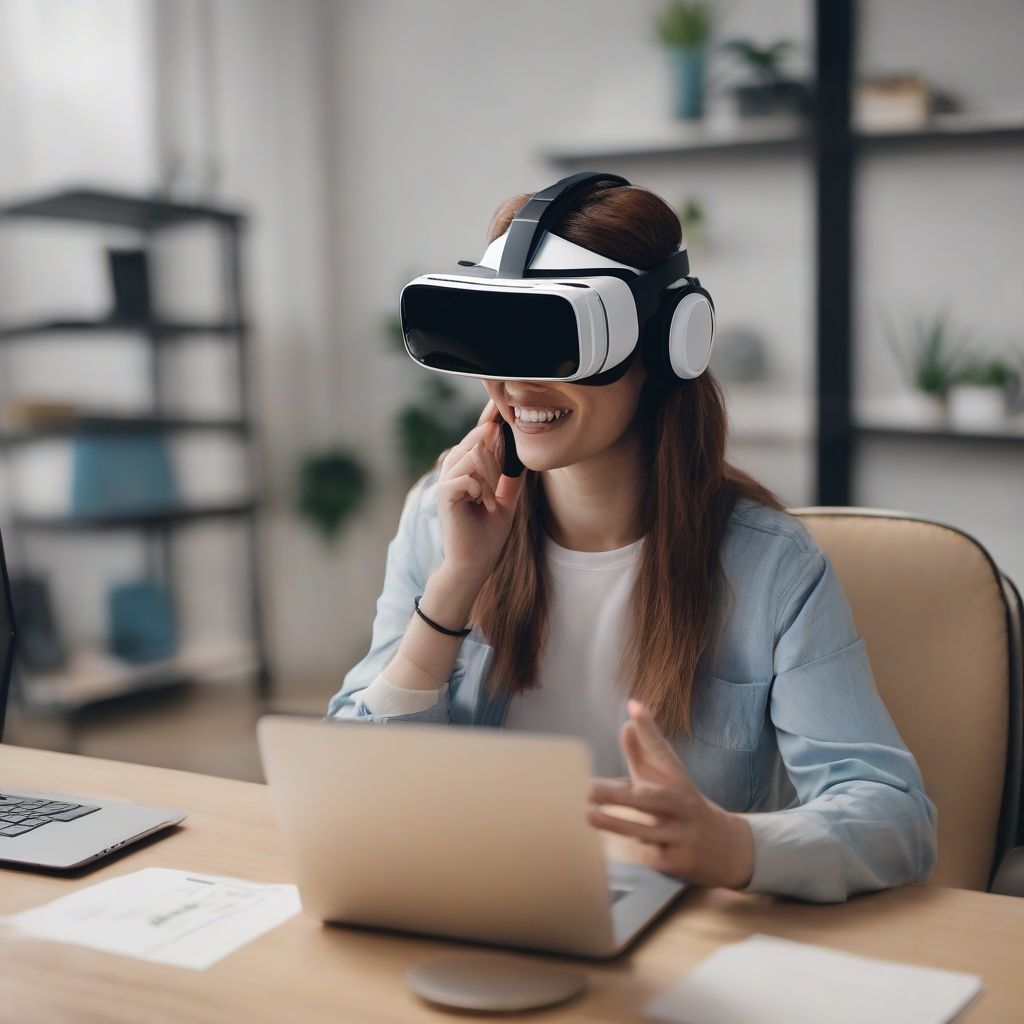Imagine a world where employees could effortlessly step into the shoes of a CEO, navigate a complex negotiation in a foreign country, or master a technical skill – all without leaving the office. This is the transformative power of Virtual Reality (VR) in corporate training and development. No longer a futuristic fantasy, VR is revolutionizing how organizations onboard, upskill, and engage their workforce.
The Rise of Immersive Learning: Why VR Training?
In today’s fast-paced business environment, companies face a constant need to adapt and innovate. Traditional training methods, often characterized by lengthy lectures and passive learning, are struggling to keep pace. Enter VR, offering a dynamic and engaging alternative that caters to modern learning styles.
Here’s why leading companies are turning to VR training:
- Unparalleled Engagement: VR immerses learners in realistic scenarios, capturing their attention and fostering a deeper emotional connection to the material. This active participation leads to significantly higher knowledge retention compared to traditional methods.
- Safe and Controlled Environment: VR allows employees to practice high-stakes situations and refine crucial skills in a risk-free virtual space. Whether it’s handling customer complaints, making critical decisions, or operating complex machinery, VR provides a safety net for experimentation and learning from mistakes.
- Personalized Learning Journeys: VR training can be tailored to individual learning paces and preferences, providing customized feedback and adapting to each employee’s progress. This personalized approach ensures optimal knowledge absorption and skill development.
- Cost and Time Efficiency: While the initial investment in VR technology might seem significant, it often translates to long-term cost savings. VR eliminates the need for travel, reduces training time, and minimizes disruptions to workflow.
 VR Training Simulation
VR Training Simulation
Real-World Applications of VR in Corporate Training
The use cases for VR training span across industries and departments, addressing a wide range of needs:
1. Onboarding and New Hire Training:
VR can provide new hires with a comprehensive and engaging introduction to the company culture, policies, and workplace environment. Imagine a virtual tour of the office, interactive modules explaining company values, or simulated scenarios for practicing communication and teamwork. This immersive experience accelerates the onboarding process and helps new employees feel more comfortable and integrated into their roles.
2. Hard Skills Development:
From manufacturing and healthcare to retail and engineering, VR offers a powerful tool for mastering technical skills. Employees can practice complex procedures, operate machinery in a safe virtual space, and develop muscle memory through repetition. For instance, medical students can use VR to perform virtual surgeries, while technicians can troubleshoot equipment malfunctions in a simulated environment.
3. Soft Skills Enhancement:
VR excels in creating realistic social interactions, making it ideal for honing essential soft skills such as communication, negotiation, and leadership. Imagine participating in a virtual meeting with a diverse team, practicing active listening, and developing strategies for resolving conflicts. This safe space allows employees to build confidence, receive feedback, and refine their interpersonal skills.
 VR Customer Service Training
VR Customer Service Training
4. Safety and Compliance Training:
VR creates highly effective simulations for safety protocols, emergency procedures, and compliance training. By immersing employees in realistic scenarios, organizations can ensure they understand safety regulations, develop muscle memory for critical actions, and remain calm under pressure.
5. Leadership and Management Development:
VR enables aspiring leaders to step into challenging leadership roles and experience the complexities of decision-making in a safe environment. They can practice communication strategies, navigate difficult conversations, and develop their problem-solving skills – all while receiving immediate feedback and guidance.
The Future of Learning: Embracing the VR Advantage
As technology continues to evolve, the potential for VR in corporate training is limitless. We can expect to see even more sophisticated simulations, personalized learning paths powered by artificial intelligence, and seamless integration with other emerging technologies.
For organizations seeking to stay ahead of the curve, investing in VR training is no longer optional – it’s a strategic imperative. By embracing the immersive power of VR, companies can unlock the full potential of their workforce, cultivate a culture of continuous learning, and thrive in today’s dynamic business landscape.
Ready to Explore the World of VR Training?
This is just a glimpse into the transformative potential of VR in corporate training and development. If you’re eager to learn more about how VR can revolutionize your organization’s training programs, leave a comment below or contact us to schedule a consultation.
[amazon bestseller=”virtual reality training”]
